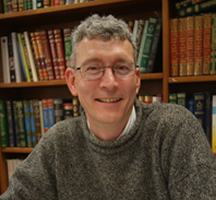Children in New Religious Movements

In the complex and sometimes fraught relationship between New Religious Movements and the wider culture and state, why is it that children are so often a focus? Children are seen as needing special protection and therefore legitimising dramatic state intervention, but are also seen as of particular importance to the future of these movements, and in some more millennial groups, of the world itself.
Muslims, NGOs, and the future of democratic space in Myanmar

The critical situation of the Rohingyas has cast a shadow over Myanmar’s process of democratization and drawn attention to some aggressively un-civil sectors of this Buddhist majority country’s Muslim minority population. In this interview with Melissa Crouch, …
Religion and NGOs: Archive

Since the turn of the twenty-first century, there has been a remarkable surge of interest among both academics and policy makers in the effects that religion has on international aid and development. Within this broad field, the work of ‘religious NGOs’ or ‘Faith-Based Organisations’ (FBOs) has garnered considerable attention.
Muslim NGOs and Civil Society in Morocco

The Religious Studies Project inaugurates its series on “Religions and NGOS” with an investigation of Muslim NGOs in Indonesia and their contribution to the development of both a vibrant civil society as well as a successful democratic system.
Robert Gleave

Robert Gleave is Professor of Arabic Studies, Institute of Arab and Islamic Studies at the University of Exeter. His areas of research focus are Islamic law and legal theory, with a particular emphasis on the role of messianism in the history of Shi’i Jurisprudence. He is director of the Islamic Reformulations project, funded by the […]
Religious Studies Project Opportunities Digest – 16 June 2017

Conference: CenSAMM: 500 years: The Reformation and its Resonations
Religious Violence Today: Faith and Conflict in the Modern World
Paths to Sexual Ethics

Paths need not be linear nor our place on them stagnant, rather we can draw from the past and draw it into the present moment, revisiting and revising as we ask new questions in enduring, and uniting, struggles over ethics in sexuality and beyond.
Religious Studies Project Opportunities Digest – 27 April 2017

You may now advertise with the Religious Studies Project!Platforms include podcasts, web pages, opportunities digest, and social media.
you may still send or forward submissions regarding calls for papers, events, jobs, awards, grants, etc.
Theologies That Cannot Be: A Response to the RSP Interview with Dr. Caroline Blyth

Every discipline has both power and responsibility to contribute to the dismantling of the Patriarchy by declaring its valorization of avarice, egotism, and violence to be wrong. The particular duty and power of religious studies and theology, is to point out that that valorization is hypocritical—that the culture of Patriarchy is itself inimical to the values of the sacred social order from which it claims its authority and for which it claims to offer protection
Caroline Blyth

Dr Caroline Blyth is a lecturer of Religious Studies in the School of Humanities at the University of Auckland’s Faculty of Arts. Her research and teaching focuses on representations of gender and sexuality in religious discourses and popular culture, using feminist and queer theories to inform her work. She is currently writing a book about […]
Michael Morelli

Michael Morelli is a doctoral candidate studying theological ethics at University of Aberdeen. He received his Bachelor of Arts at Simon Fraser University and Master of Arts in Christian studies at Trinity Western University—both situated in Vancouver, Canada. He is currently researching and developing a theological response to digital technology’s violence.
Science, Religion, and the Tyranny of Authenticity

Fitting neatly within a complexity thesis tradition, Hameed employs what might be called normativizing nuance. By this I mean that by demonstrating the complexity/messiness of things “on the ground,” one version of a tradition can be delegitimized and/or another version of the tradition can be legitimized. In this sense, “Islam and science/evolution” has a great deal of resemblance to work on “Islam and violence.”
Radical experiences that can change worlds

The observation that ideas are not inherently radical, but that the term is a relative one that involves comparisons to social norms, is of critical importance. The value judgments that we ascribe to ideas are not innate to them but are instead reflections of our own beliefs. These beliefs and norms vary between societies and over time within society.
Musical Secrets and Mystical Language

Drone music is often described with terms such as violence, aggression, pain and suffering, but it is these markers of extremity which allow a sense of catharsis, dark spirituality and even healing according to listeners. Drone metal, then, addresses deep issues of importance in rather different musical and conceptual registers to Hoondert’s requiem composers and audiences.
Religious Studies Project Opportunities Digest – 6 December 2016

Do you have a call for papers, an event announcement, a job vacancy, grant or award you would like others to distribute?
How about having your notification posted with the Religious Studies Project’s weekly Opportunities Digest? It’s easy,
